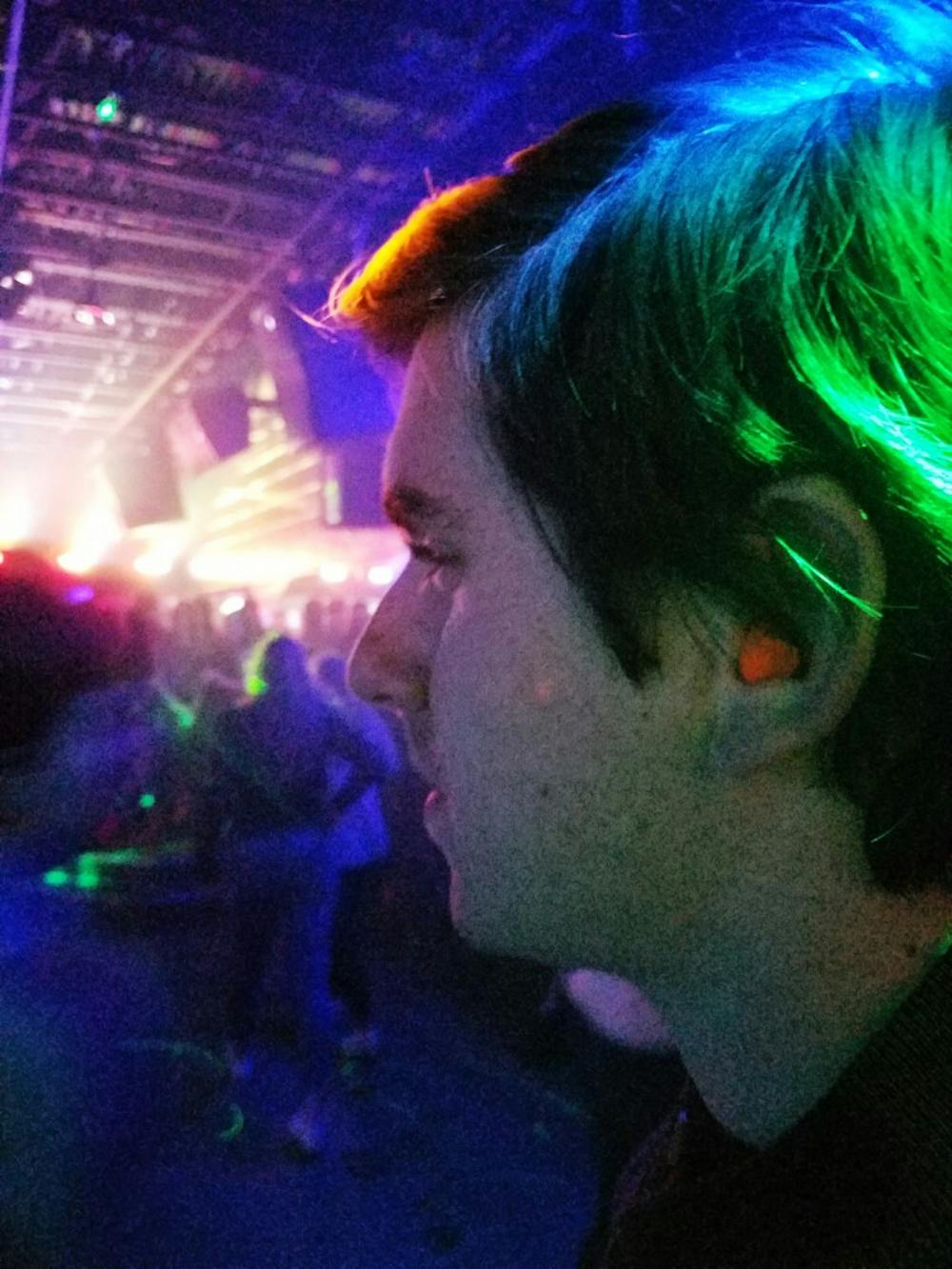College students' memories might not be the only thing they're losing during nights out.
When someone stumbles out of one of Oxford's bars unable to hear the people around them, their ears ringing, they're experiencing genuine hearing loss. It's only temporary, but long-term exposure to club music (which can hover around 100 decibels, as opposed to a normal conversation's 60), can set them up for permanent hearing problems in the future.
Speech pathology and audiology professor Chip Hahn explained that in America, any workplace in which employees experience sound levels exceeding 85 decibels for long periods of time is required to offer them hearing protection. This rule does not extend to bars.
"So, students and others that are out having a good time don't necessarily think about the fact that, 'Oh, this music is so loud I can see the windows vibrating,'" said Hahn.
Hair cells lining our ears transmit sound to our brains, but they can be ravaged by blaring bar music if subjected for drawn-out periods of time. Hahn likened them to blades of grass in a yard, though grass can eventually grow back -- hair cells in our ears can't.
"If you mow a lawn, you can kind of see the tracks where the wheels are," said Hahn. "After two or three days you don't see them anymore, because the grass has stood back up, but imagine if you were mowing every two or three days; those hairs would never get a chance to fully recover, and you can actually see what is a temporary shift become a permanent shift, [which] becomes noise-induced hearing loss."
Some people are predisposed to experience hearing loss through genetics or other circumstances. Prolonged exposure to loud music, which can easily be achieved by going out several times a week, can exacerbate this.
But pop music pumping through bars isn't all detrimental to peoples' health; there's an upside. Comparative media studies professor Mack Hagood acknowledges that it can be damaging, but bar music also helps people dismantle communicational roadblocks and overcome social awkwardness.
"Everybody knowing the same songs is a way of confirming identity and confirming that you belong to some social group," said Hagood. "It helps people break through social roles or social anxieties or hangings."
Hagood pointed to research from one of his students that showed when students can't easily speak to one another at noisy bars, they can communicate in other ways, like dancing.
Plus, both Hagood and Hahn agreed that blasting music in your earbuds is, ultimately, much more damaging than going to Brick Street or New Bar a couple nights a week.
Hahn advises students to use two rules to determine whether something they're listening to can damage their hearing. One, the "arm's length" rule, dictates that if you can hear noise from someone's earbuds an arm's length away, it's too loud.
Enjoy what you're reading?
Signup for our newsletter
The other is the "60-60-60" rule; this means never surpassing 60 percent of your music device's volume while listening with earbuds and never listening for over 60 minutes without at least a 60-minute break in between.
Should students be concerned about hearing loss stemming from bar music? Probably, but more so regarding excessively loud earbud volume. The only way to avoid it completely, however, is abstaining from going out -- maybe just use apps like these to stay mindful and do your best to abide by the rules of limited hearing loss.




